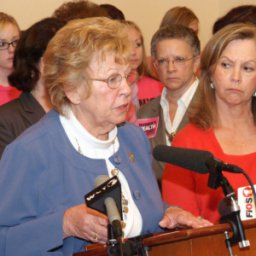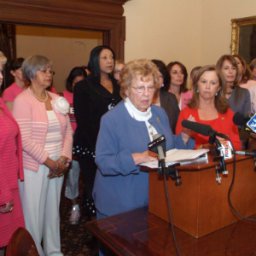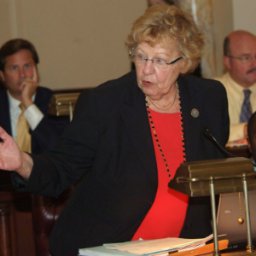TRENTON – Senate Health, Human Services and Senior Citizens Committee Chairwoman Loretta Weinberg, the sponsor of legislation to restore – through surplus funds in the State Employee Prescription drug program – $7.5 million in funding which was cut from the FY 2011 State Budget for women’s health and family planning services, issued the following statement today regarding the Committee’s hearing on the bill. The measure, S-2139, was approved by a bipartisan, veto-proof majority in the Senate at the end of June:
“Today, we wanted to give the Administration an opportunity to highlight alternate plans or discuss concerns about the funding source we identified for women’s health programs. Unfortunately, our request for information was met with deafening silence.
“While we appreciate that Commissioner of Health (Poonam) Alaigh attempted to answer our Committee’s questions, questions about the funding source that we had for Treasurer (Andrew) Sidamon-Eristoff went unanswered. Neither the Treasurer nor a representative of his department attended our hearing. The only thing we can take from the Treasurer’s absence is that there are no specific complaints about our funding source, besides the fact that it would go to family planning and women’s health agencies which are ideologically opposed by some of the more right-leaning elected officials in the State.
“One thing is certain: whether the funding source is valid or problematic, we have to find funds somewhere for women’s health programs. These funds, which are eligible for a 9-to-1 federal match through the enhanced Medicaid program, end up saving the State $150 million each year while providing health care services to 136,000 men and women. The safety net cannot absorb this loss in funding, and as a result, more people will be left without access to health care services, including cancer and STD screening, reproductive health, prenatal and postnatal care, and yes, even contraception.
“We again ask the Governor to act: either sign the law or veto it. Work with the Legislature to identify concerns, whether over funding or over some other component of the bill. But act soon, because as we delay, thousands of people are denied access to potentially life-saving care because the funding just isn’t there.”




